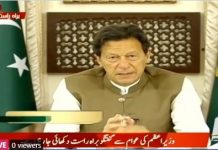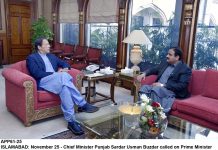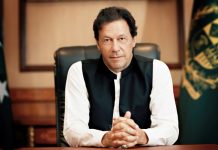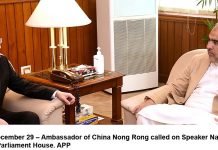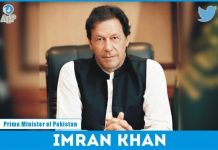ISLAMABAD: After having witnessed nearly seven decades of an independent Pakistan, Muhammad Khan Naqshbandi, an active worker of Pakistan Movement, still dreams of a country where nationalism transcends racialism and provincialism.
The 95-year old was awarded a gold medal by the government of Punjab in 1989 in appreciation of his services for Pakistan. He believed that amidst the present circumstances when monsters of ethnic, sectarian and provincialism were being unleashed on the country’s stability, there was an urgent need to launch a vivid campaign to promote nationalism.
He added, “It gives me pleasure when I see everybody becoming true Pakistani in the month of August, particularly on 14th of every August.” While reminiscing the speech of founder of the nation, which he delivered only 10 months after the creation of Pakistan, Naqshbandi reckoned, “This is the time of the year when I don’t see any Punjabi, Balochi, Sindhi or Pakhtun. I also don’t meet Sunni or Shia during these days but only Pakistani nationals. This is what I want to see throughout the year. And this is what was aspired by Quaid-e-Azam Muhammad Ali.”
On June 15, 1948, in his address to the Quetta Municipality, Quaid had postulated, “While, however, one must love one’s town and work for its welfare – indeed because of it – one must love better one’s country and work more devotedly for it. Local attachments have their value but what is the value and strength of a ‘part’ except within the ‘whole’. Yet this is a truth people so easily seem to forget and begin to prize local, sectional or provincial interests above and regardless of the national interests. It naturally pains me to find the curse of provincialism holding sway over any section of Pakistan. Pakistan must be rid of this evil.”
Naqshbandi’s wife, Masuda, was also an ardent worker of Pakistan Movement, who remarked that people of Pakistan’s all provinces and races had taken part in the Pakistan Movement. “I was a class 9th student at that time. I saw people from every part of this country taking part in the Movement and sacrificing lives. When Pakistan came into existence everybody felt proud on being Pakistani national,” the 87-year old added while recalling the day the country had come into being.
Professor Muhammad Umar, who has been teaching the history of Pakistan at country’s various colleges for the past three decades, also expressed similarly, “Though, we’ve spent years since our independence, I feel we still need to promote nationalism as we needed that when Jinnah was alive. Nature had bestowed Jinnah with greater foresight and strategic vision. He had warned his countrymen about the curse of provincialism right at the outset. He wanted Pakistani people to be mindful of the dangers which provincialism and racialism might pose to the country’s solidarity.” He also underlined the need to make the Federation strong by transmitting fruits of democracy to Pakistan’s all provinces and races. “We need to safeguard the interests of our all people and address their grievances on an equal basis,” he added.
He was of the view, “Pakistan is a land of diversity. It has world’s highest mountain ranges, vast sea, myriad rivers and streams. It is also full of sandy deserts and thick forests. Among its people, it has copious races, creeds, castes and languages. But all these have festooned this country with a unique diversity. There is no denying the fact that provinces and races have their own respective history. Denying this fact will be tantamount to erasing our rich history and varied culture.”
National University of Modern Languages (NUML) Professor, Dr Arshad Mehmood Raja remarked that despite all of the diversity, the beauty and strength of Pakistan lies in its unity. “This is what I believe we need to inculcate among our youth. What we’ve been witnessing since past few decades is that some people have been trying to promote provincialism and racialism instead of nationalism. I’m sure they will never succeed in their nefarious designs. I also believe that the Independence Day reminds us to get rid of these twin evils,” he added. Raja elaborated, “Yes, we’ve had differences but these should be looked upon as varieties that enrich our society and the nation as a whole.” He also desired that the unity and passion expressed by the Pakistani people in the month of August be reflected throughout the year. “We should always remain united as a nation in order to send a strong message to the world that despite all problems, the Pakistani nation is determined and well-equipped to fight with all internal and external challenges with unity, strong determination and power,” he asserted.

